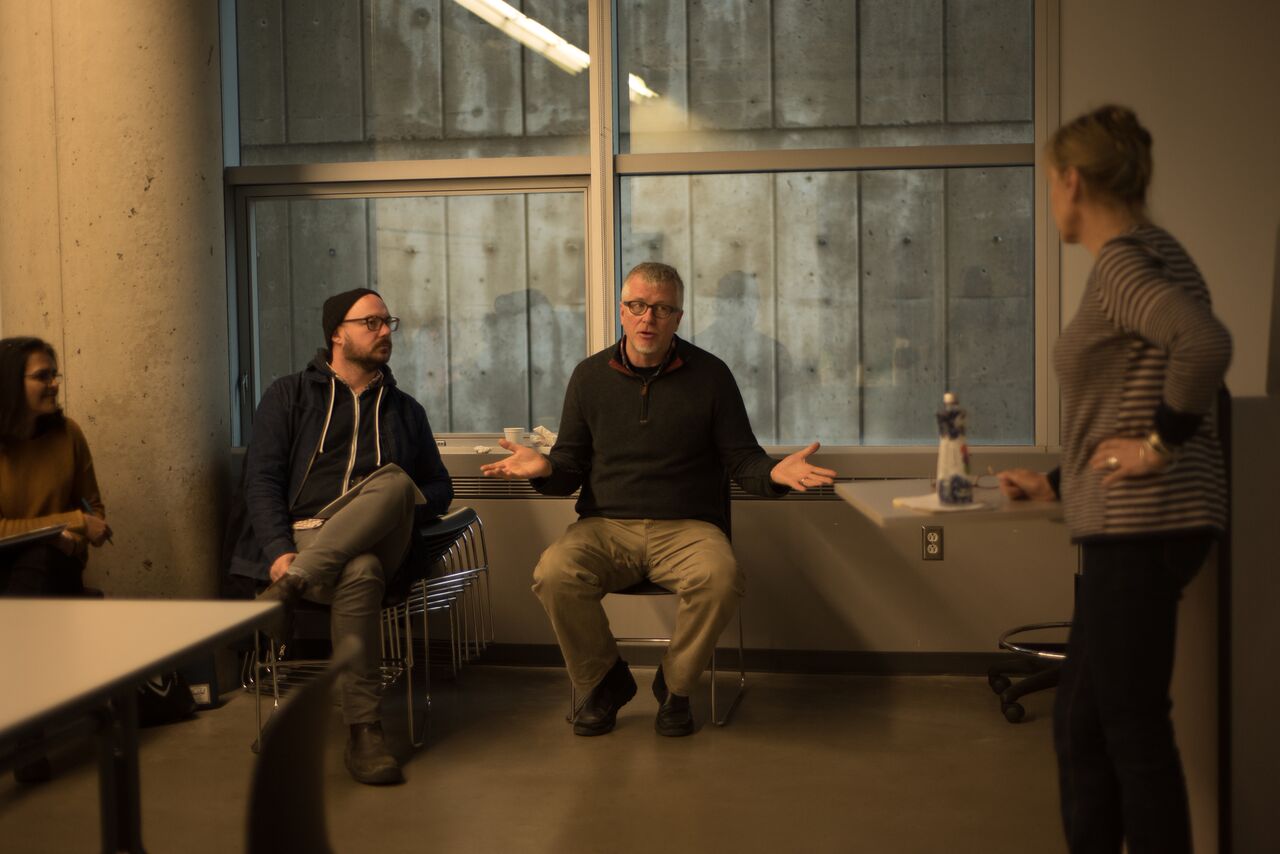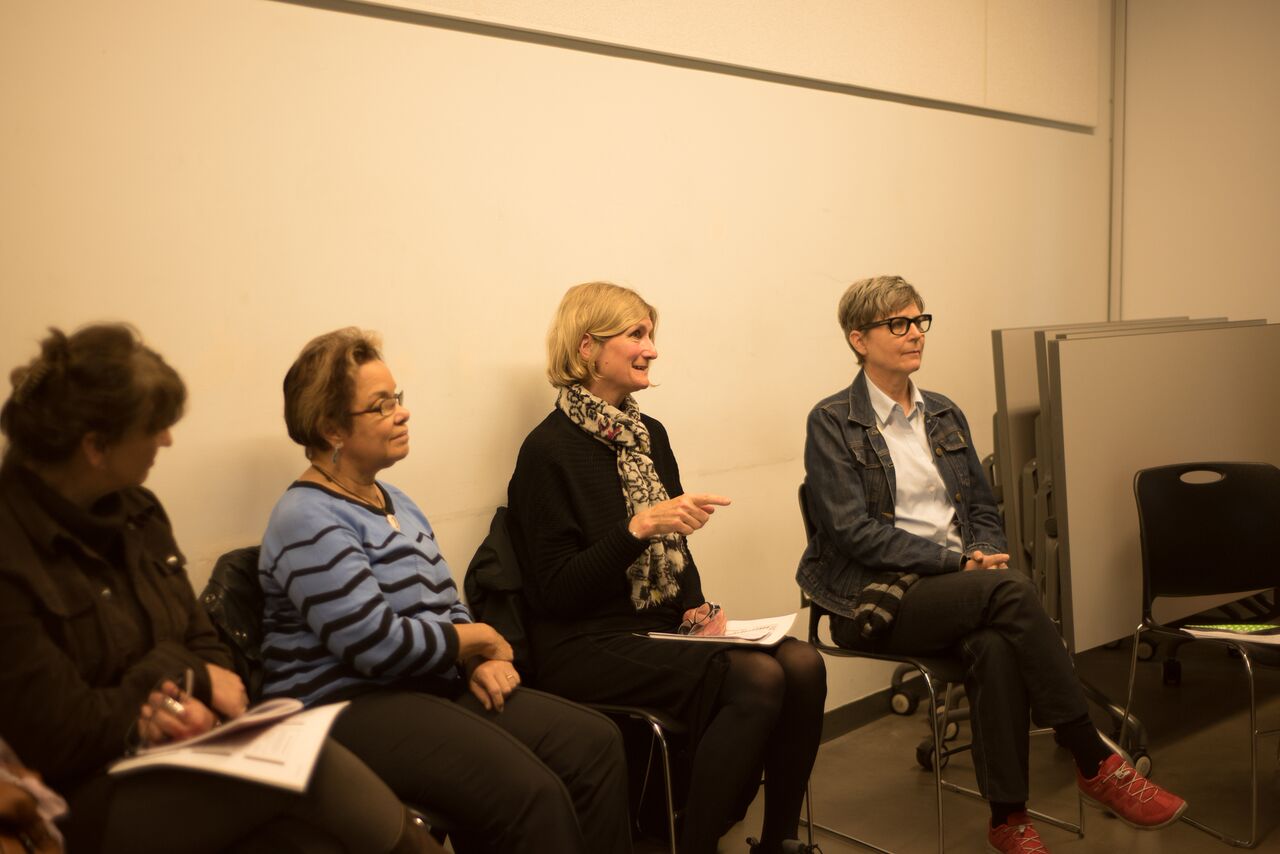CUPFA workshop discusses research by part-time faculty and the challenges they face
Six Concordia part-time faculty members discussed their research, projects and experience as educators in Reframing Pedagogy, the first of six Microlink workshops on Friday, Oct. 29.
The workshops, held at Concordia’s Sir George Williams campus and hosted by the Concordia University Part-Time Faculty Association (CUPFA), are meant to encourage dialogue and feedback between faculties.
The speakers included French studies instructor Louise-Marie Bouchard; Yosra Dali, Sonia Di Maulo and Pamela Gunning and Jesse Hunter from the department of education; and Francine Tremblay, from the department of sociology. There was a small audience of Concordia instructors. After each presentation, the speakers welcomed spirited discussion..
Some of the work shared included Bouchard’s recently published book, L’art de la pensée, which challenges common perceptions of creative thinking, and Gunning’s research on ESL education and collaboration between teachers in Quebec schools. Hunter’s research on creative thought was also discussed, as well as Tremblay’s study on millennial students and disengagement.

While the workshop focused on topics pertaining to education and pedagogy, both presenters and attendees did not shy away from discussing the controversies surrounding part-time work at Concordia and other post-secondary institutions. Dali shared the results of her case study of three part-time staff members outside of Concordia, each of whom had experienced feelings of isolation and a lack of organization from an administrative standpoint. She also described the fear her study’s participants felt regarding job security.
“[A study participant] was asking, ‘Am I going to have a session next year?… Will I have to go back to teaching at the high school level? Will I have to go back to telemarketing?’ [These instructors] are living from session to session,” Dali said.
Dali’s findings prompted conversation with the audience, with some members agreeing that part-time staff members do face administrative difficulties, while others felt isolation wasn’t a problem at Concordia, since there is a relatively high number of part-time faculty members. “It’s different [at Concordia],” said Hunter. “Part-time staff [are] the lifeblood of the university.”

Tremblay’s presentation on millennial students and disengagement in post-secondary studies also prompted an engaged conversation among attendees. At the beginning of her study, Tremblay had expected to find that technology was a major factor in “disengagement,” but she later concluded that this was misrepresenting the problem. She found that many students are disengaged because they are extremely stressed and facing a competitive job market after graduation. Students understand that they will likely need further education after a bachelor’s degree, and as a result they are less in engaged in subject matter and more focused on passing, graduating and finding a job as quickly as possible. “Students today are extremely stressed and extremely anxious,” she said. “They cannot project themselves in the future, and the competition today is fierce.”
Many professors in attendance agreed with this sentiment, voicing both sympathy for students and frustration with their lack of engagement in recent years.
CUPFA is hoping this enthusiastic, engaging dialogue will continue at its upcoming workshops, scheduled once a month between November and March.




